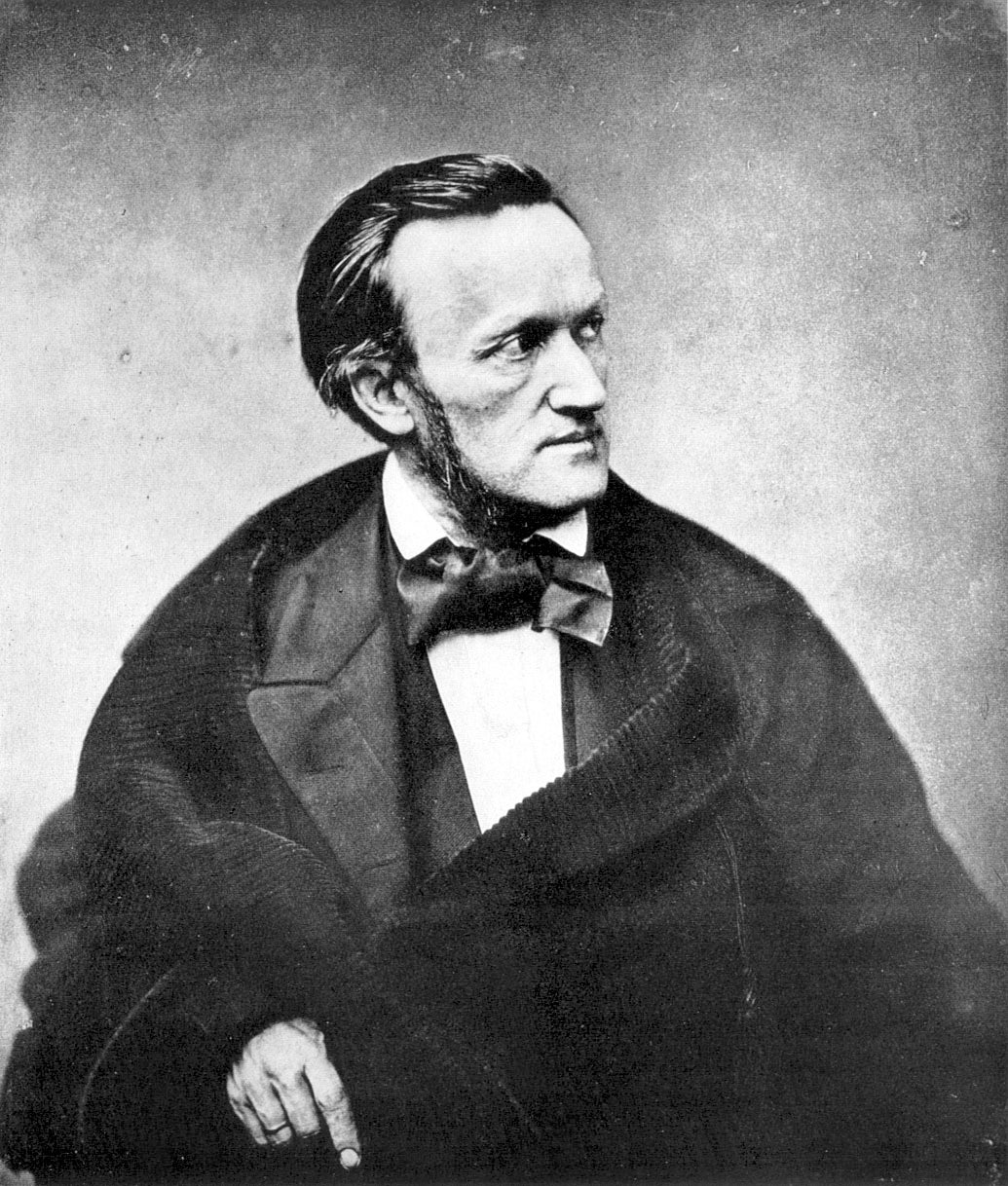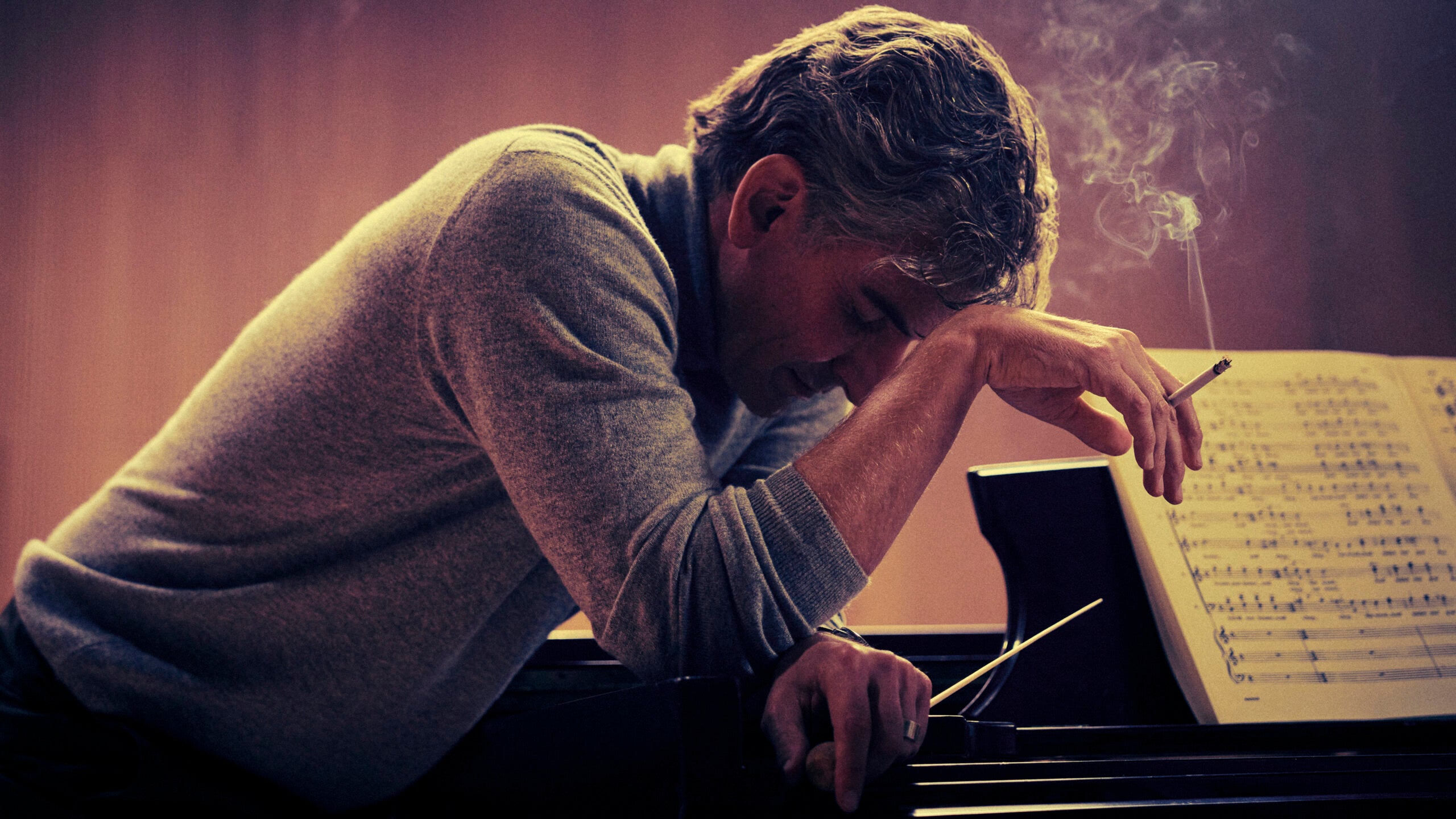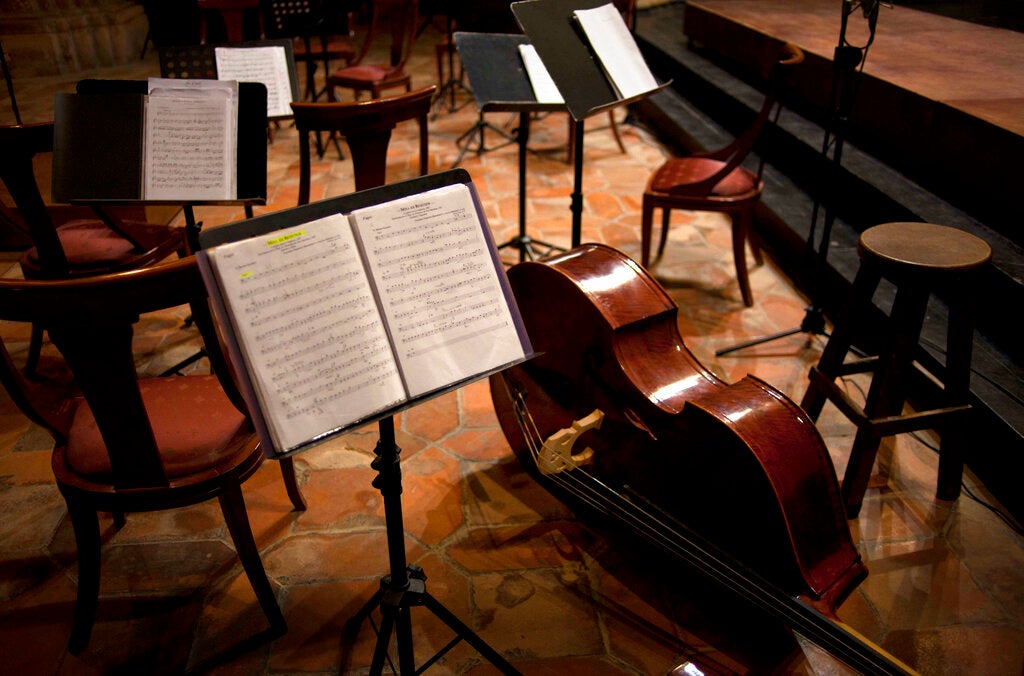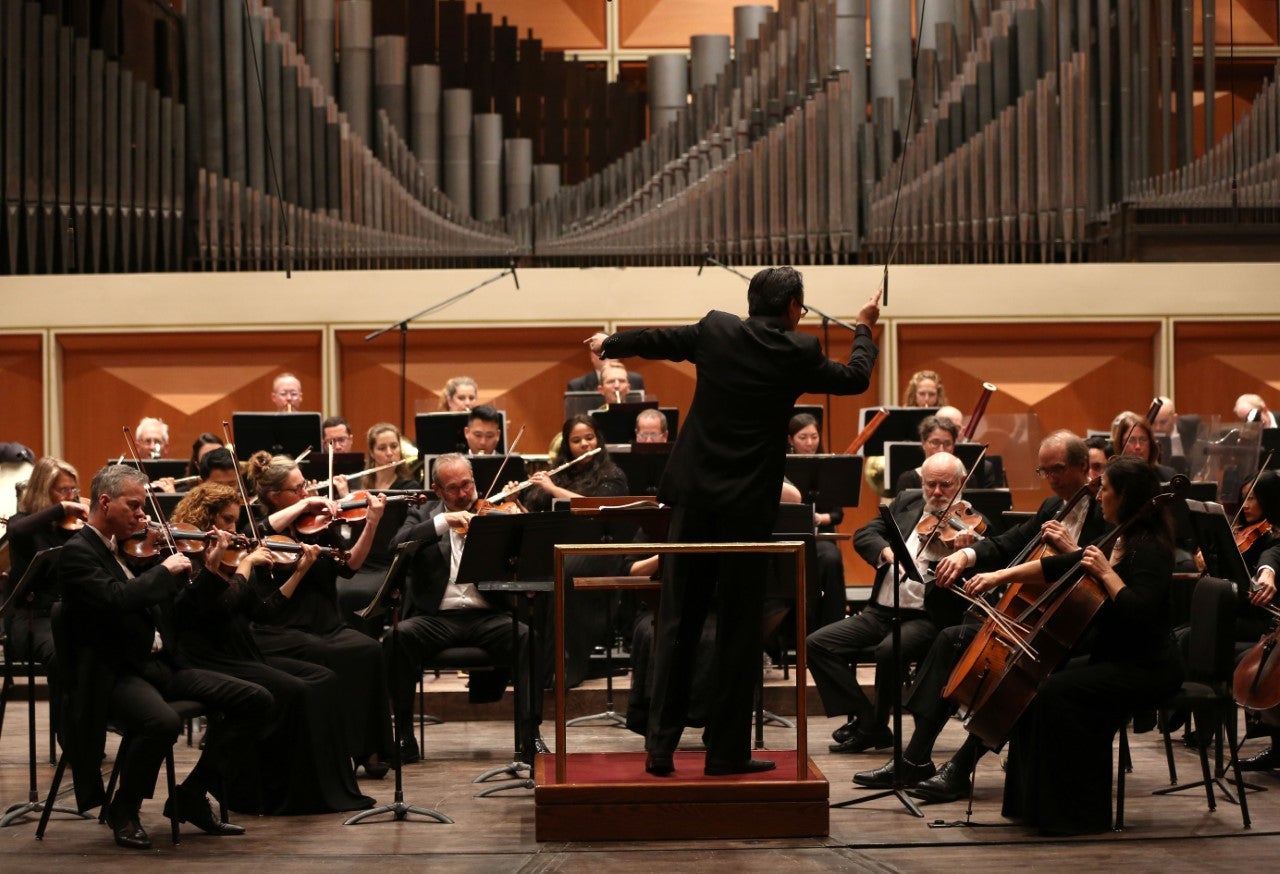They got off to a bad start. It’s 1877 and Richard Wagner was in England as guest conductor for a series of ten concerts. A large orchestra—nearly two hundred Englishmen and Germans–was to begin rehearsing. The music for this first rehearsal was to be Das Rheingold. The English members of the orchestra waited for their first glimpse of the great Wagner, even though their long-time leader, the highly respected Hans Richter, wa expected to do most of the conducting.
Then an unfortunate accident occured. As he entered the hall, Wagner walked past some kind of overhang that crushed his hat. Apparently unaware of the mishap, he came strutting up to the orchestra with a haughty demeanor, unintentionally creating a comical first impression for the English members of the orchestra. The musicians closest to Wagner seem to be too in awe of him to suggest that he remove his hat and punch it back into shape.
Trying to ignore the mysterious mirth of the Englishmen, Wagner raised his baton and begins to conduct long, rolling arpeggios evocative of the Rhine. He soon got so swept away that he forgot about the baton and tried to conduct with his fingertip. The music came to grief. “Schlect,” Wagner said, pacing back and forth, “Bad!” The Englishmen had a good chuckle.
Stay informed on the latest news
Sign up for WPR’s email newsletter.
The German leader of the second violins jumped up and rapped his bow on his music stand, saying “Is no tink to laugh!” The ivory tip of the bow flew off and hit another German in the face, and Englishmen and foreigners alike laughed aloud. Wagner is furious. Hans Richter led him from the room, trying to calm him down as the musicians give way to complete merriment.
Richter returns without Wagner. He had a baton in his hand and said just two words: “Now, boys!” And as if it was all one instrument, the orchestra began playing the soaring measures of Das Rheingold.
Wisconsin Public Radio, © Copyright 2024, Board of Regents of the University of Wisconsin System and Wisconsin Educational Communications Board.






